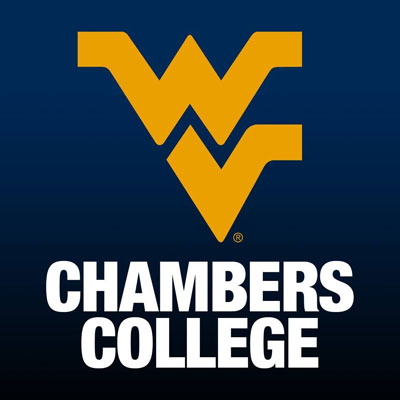Meet Ali Bobalik, vice president of human resources at Synchrony. She’s the best.
No, really. She is. A corporate workplace is only as good as its human resources team, and in June 2025, Synchrony’s New York City hub – whose talent Bobalik helps manage – was named the city's #1 workplace by Fortune and Great Place to Work.
Bobalik’s secret isn’t so secret: she’s a graduate of the John Chambers College of Business and Economics at West Virginia University, earning her Master’s of Science in Industrial Relations and Human Resources in 2016.
Her experience in that program was also the start of her journey with Synchrony, and the first rung of a very tall ladder. Now, she’s pausing her climb to answer a few questions about the world of human resources, and how you can make your workplace the best it can be.
Let’s start off easy. Where are you from, and how did you arrive at WVU?
I was born in Ohio, but I went to school in West Virginia from kindergarten up through high school. WVU was always talked about as an option for college, and I knew that although my parents would have supported me going out of state, I needed some really strong tuition support.
What did you study, and when did you realize you wanted to work in HR?
I was always really passionate about political science and history, so International Studies and Chinese Studies ended up fitting the bill. But towards my senior year, I started to wonder what master’s degree would help me utilize my International Studies background, but also succeed in the business world?
I walked into the Chambers College’s graduate programs office, and they pushed a pamphlet my way about the MSIRHR program. What I liked about the field was that you were always working in grey areas, and it always involved people. It’s dynamic – you have to work with someone to figure out what the right answer is. It was the perfect combination of balancing concepts and perspectives to arrive at a middle ground solution.
Everything that any business accomplishes, it accomplishes using people. Any big, new, strategic initiative, there are people behind it, making decisions, driving it. People will always be at the heart of everything you do, and if you don’t have them aligned and on board, they aren’t able to be the best version of themselves and they won’t be able to do their jobs.
How did your experience in the program lead you to Synchrony?
In the MSIRHR program, you have to do an internship, and I interned with Synchrony. I just had a really strong gut feeling about it – I wanted to go somewhere where I would be encouraged to make an impact.
The program is meant to build a foundation and prepare you for your career, and I felt very prepared to step into my role at Synchrony. Having us connect to companies and have challenging conversations – there was so much I learned about the foundations of working in business. Now I’m coming up on ten years with them.
Now you’re in charge of a full team too. How did you transition into a management role?
What was truly invaluable, and what made me successful in my internship and early career, was the exposure to working on a team and collaborating to get something done. People scoff at doing group projects, but most people’s careers are focused on group projects. Learning how to play a role on a team and express yourself is really important.
What the program prepared me for is to be resourceful. You’ve got to figure things out. I think learning that throughout the program has been a really big reason why I’ve been able to grow into bigger roles with Synchrony.
Time for the million-dollar question: what makes somewhere a great place to work?
You could ask that question to many different people and get many different answers – what I think makes us a great place to work is that we asked that question. We know what our employees are passionate about, and what makes a workplace great for them.
I ran all of our company-wide employee surveys, and got to see every comment that came in across all the teams, and our chief human resources officer and CEO read them as well. We had 16,000 responses to open-ended questions. We heard that people were looking for more clarity around career growth and feedback, so we did a full revamp of our career growth framework.
You can’t make assumptions about what needs to change, or what will build trust between an employee and their employer. Listening, and then bringing people along on whatever you do, is really important.
-WVU-
am/6/15/25
MEDIA CONTACT:
Andrew Marvin
Senior Communications Specialist
John Chambers College of Business and Economics
andrew.marvin@mail.wvu.edu

